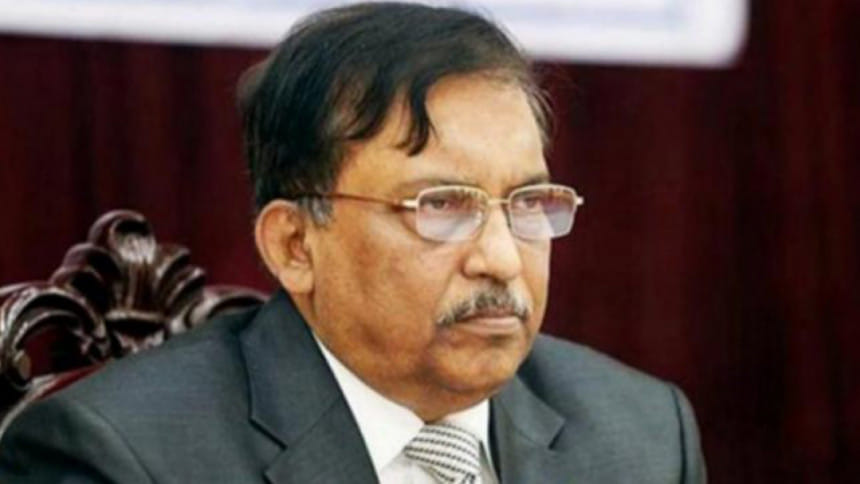Surveillance stepped up on Myanmar border

Home Minister Asaduzzaman Khan Kamal yesterday said border surveillance has been stepped up to prevent trespassing from Myanmar after the military coup in the neighbouring country.
What is happening in Myanmar is its internal matter, he told a programme at the capital's Police Plaza, adding that Myanmar had been under military rule before.
Myanmar army seized state power on Monday, detaining Nobel laureate Suu Kyi.
Foreign Minister Dr AK Abdul Momen at another event said Bangladesh secured the borders to make sure that any Rohingya influx is prevented.
There are fears among Western countries that there could be another Rohingya exodus amid the military takeover.
"In 2017, when Rohingyas were persecuted, our people welcomed them. Now our people don't want them. We have secured our border. Let others accept them if Rohingyas flee their country, but we don't want to accept them," he told reporters at his office yesterday.
However, the foreign minister added that Dhaka was not anticipating a renewed Rohingya influx.
"Some friendly countries fear that the rest of the Rohingyas would flee to Bangladesh from Rakhine," he said.
Dhaka is willing to continue talks with Myanmar about Rohingya repatriation, he added.
On January 19, it was decided at a secretary-level tripartite meeting among Bangladesh, China and Myanmar that a joint working group meeting would be held today for advancing the repatriation discussion. However, the scheduled meeting is now uncertain since Dhaka has yet to officially communicate with Myanmar following the coup.
Bangladesh is hosting over 1.1 million Rohingya refugees in Cox's Bazar. They fled Myanmar amid military crackdowns that many rights groups call an ethnic cleansing.
A 2017 military crackdown in Myanmar's Rakhine State sent about 750,000 Rohingyas fleeing to Bangladesh, where they are still stranded in refugee camps.
"There are about 600,000 Rohingyas that remain in Rakhine state, including 120,000 people who are effectively confined to camps ... they cannot move freely and have extremely limited access to basic health and education services," UN spokesman Stephane Dujarric told reporters in New York.
"So, our fear is that the events may make the situation worse for them," he said, reports Reuters.

 For all latest news, follow The Daily Star's Google News channel.
For all latest news, follow The Daily Star's Google News channel. 



Comments